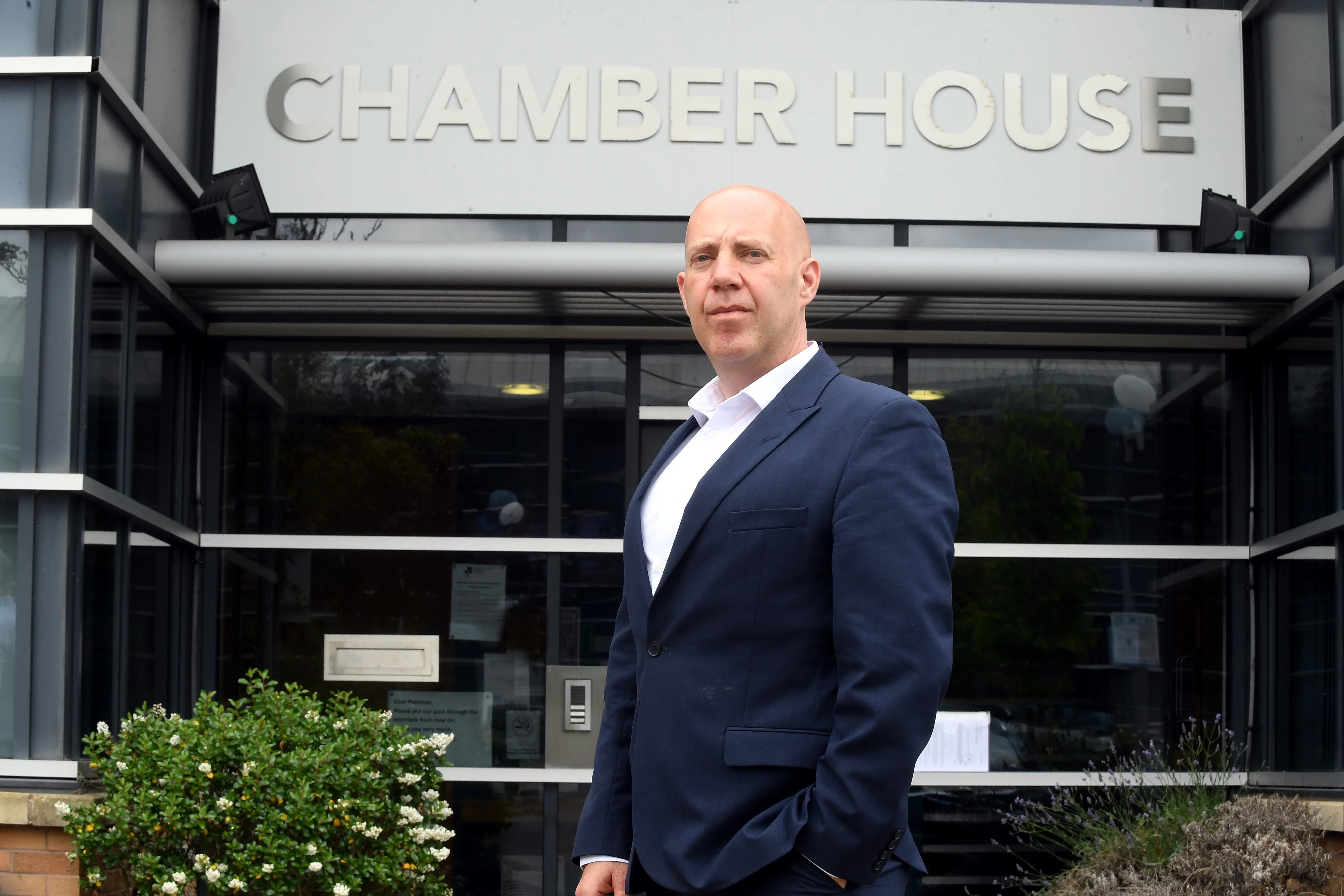
Partner Article
Chamber says Government faces an economic tightrope as interest rates rise
Business leaders in Coventry and Warwickshire say the Government will have to ‘walk a tightrope’ to support the economy after the Bank of England put interest rates up to 2.25 per cent.
The base rate rose once again as the Bank looks to tackle inflation that currently stands at 9.9 per cent as firms across the region and the country face rising costs.
But Corin Crane, Chief Executive of the Coventry and Warwickshire Chamber of Commerce, who met with the Bank of England’s representative in the region with a group of Chamber members this week, said it meant a challenging balancing act for the Chancellor, Kwasi Kwarteng MP.
He said: “We had a really good meeting with the Bank of England this week when we could put the concerns of businesses from a range of sectors to them and show just how tough it is out there for firms in the region.
“The Bank’s primary focus is inflation and how to get that down and interest rates is the lever it can pull to try to do that.
“But this presents a challenge to the Government too because it wants to stave off recession and is widely predicted to be introducing measures to stimulate the economy in this week’s fiscal event.
“They are walking a tightrope of trying to make sure demand in the economy isn’t choked off but, equally, that inflation doesn’t continue to rise.
“Ultimately, businesses across the patch want to see a long-term plan that gives them the confidence to invest in their growth. We all appreciate that there hasn’t been a ‘normal’ period for the economy for many years and that short-term measures have been required but it’s vitally important that a strategy starts to emerge to help give businesses and investors confidence.”
David Bharier, Head of Research at the British Chambers of Commerce (BCC), said: “The decision by the Bank of England to raise the base rate to 2.25 per cent is further evidence they are taking a hard line on tackling inflation. Our research shows that unrelenting inflation, largely driven by rising energy costs, is by far and away the top business concern at present.
“But the Bank faces an increasingly tricky balancing act. The interest rate is a very blunt instrument to control inflationary pressures that are largely driven by rocketing energy costs and global supply chain disruption. The Bank’s decision to raise rates will increase the risk for individuals and organisations exposed to debt burdens and rising mortgage costs – dampening consumer confidence.
“Recent energy price cap announcements will have provided some comfort to businesses and households alike and should place downward pressure on the rate of inflation. “Friday’s fiscal statement by the Chancellor is now a critical moment. He has the unenviable task of shoring up the economy whilst avoiding additional inflationary stimulus.
“The Bank, looking to dampen consumer demand, and Government, looking to increase growth, could now be pulling in opposite directions. “What businesses will want to see is a plan to address the short-term drivers of inflation as well as a long-term strategy to promote investment that gives them confidence for the future and counteracts the recessionary pull of rising interest rates.”
This was posted in Bdaily's Members' News section by Matt Joyce .








 Creating a thriving North East construction sector
Creating a thriving North East construction sector
 Why investors are still backing the North East
Why investors are still backing the North East
 Time to stop risking Britain’s family businesses
Time to stop risking Britain’s family businesses
 A year of growth, collaboration and impact
A year of growth, collaboration and impact
 2000 reasons for North East business positivity
2000 reasons for North East business positivity
 How to make your growth strategy deliver in 2026
How to make your growth strategy deliver in 2026
 Powering a new wave of regional screen indies
Powering a new wave of regional screen indies
 A new year and a new outlook for property scene
A new year and a new outlook for property scene
 Zero per cent - but maximum brand exposure
Zero per cent - but maximum brand exposure
 We don’t talk about money stress enough
We don’t talk about money stress enough
 A year of resilience, growth and collaboration
A year of resilience, growth and collaboration
 Apprenticeships: Lower standards risk safety
Apprenticeships: Lower standards risk safety